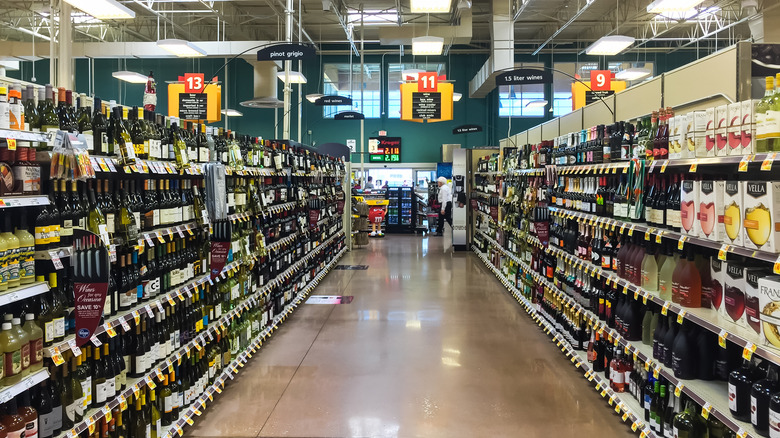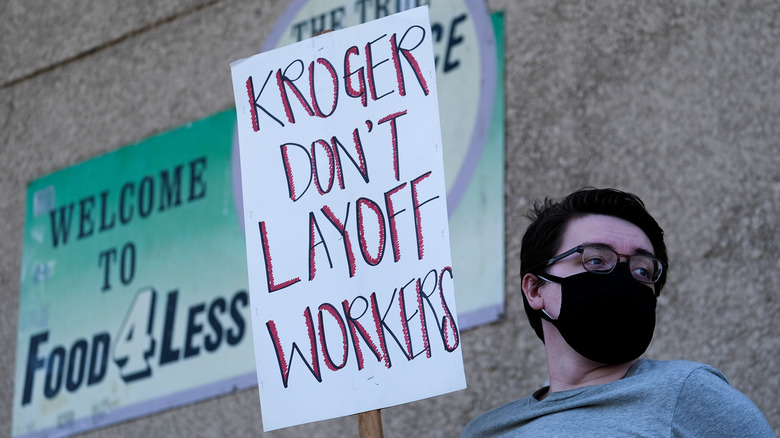Why Kroger Might Not Survive 2022
Kroger may seem like a grocery chain that's too big too fail, but could 2022 bring detrimental change to this food giant? September of 2021 saw the grocer's shares drop by 9.1%, per Reuters. Executives have attributed wastage, discounts, and the global supply chain disruption to these falling numbers. "Consistent with many retailers, we experienced supply chain constraints and increased warehouse and transportation costs during the quarter," Kroger chief financial officer Gary Millerchip said in a call with shareholders, adding that higher supply-induced costs are expected to persist well into the new year.
Ronald Fong, president of the California Grocers Association, pointed to a different concern about grocery stores' futures in light of the closure of two Kroger-run stores in Long Beach, California. Both stores, per a city mandate, had been obligated to pay workers an extra $4 an hour in "hero pay" during part of the pandemic (via Los Angeles Times). "You are mandating a 30% raise essentially, putting grocers in a position to make some difficult decisions," Fong told the publication. "Every single company is worried about this." Kroger is one of multiple grocery chains that might not survive 2022, but the store's fate is of course not yet certain.
Kroger has faced controversy during the pandemic
Not everyone agrees that "hero pay" mandates have helped lead to Kroger's difficult times. After Kroger explained that hazard pay was behind its decision to close two Seattle-area stores in 2021, a piece in Crosscut suggested that the company was exaggerating its struggles to increase its workers' wages. The article notes that while pay raises could certainly cut into grocery stores' already thin profit margins, "it doesn't make sense to make long-term business decisions in response to unusual and temporary costs." A similar piece in Forbes suggested that Kroger's closings in opposition to hazard pay were greedy and avoidable.
The combination of "hero pay" controversy in the first half of the year and supply chain difficulties in the second half has resulted in a financial hit for Kroger. While it's unknown whether or not the chain will remain afloat in 2022, the new year is likely to bring more changes to the grocery industry at large. NERA Economic Consulting explains that Instacart, for example, has accounted for "92 percent of net grocery job creation" during the pandemic and helped drive up average weekly wages for grocery workers by about $22. As COVID-19, the rise of third party delivery services, and other factors affect how grocery stores conduct their business, we will likely continue to see major shifts in the food sector.

